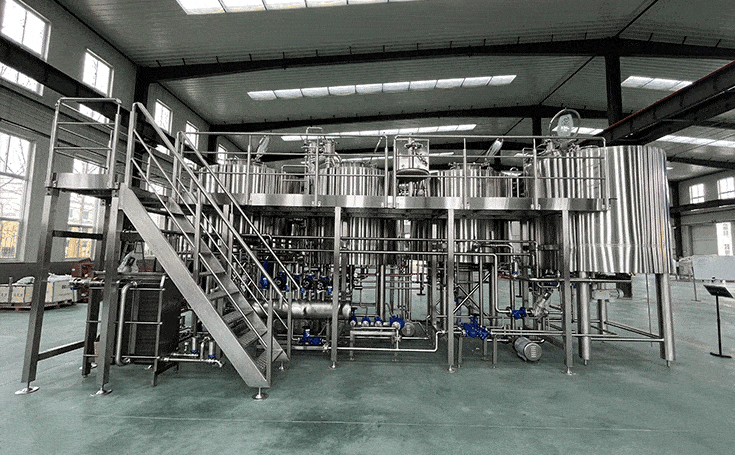Main Body Warranty
Auxiliary Warranty
Equipment Type
Teaching Experiment Turnkey Solution Steps
Conceptualization And Planning
Location Selection
Equipment Design And Selection
Course Development
Debugging
Instructor Selection And Training
Safety And Regulatory Compliance
Supplies And Ingredients
Teaching And Assessment
Technical Advantages

- Simple and flexible operation, low power consumption, small footprint.
- The equipment can be designed according to the needs, which is convenient for teaching and scientific research.
- Develop students' practical skills and present the craft of brewery brewing.
- Professional personnel comes to the door for installation and commissioning, providing customers with a full range of services.
- Customized processing can provide customers with small beer test and pilot test system equipment.
Why Choose Our?

Convenience
Turnkey solutions are designed for convenience, so you don't need to spend time and effort procuring equipment, ordering parts, or setting up experiments. Everything is delivered in one integrated package, making it easy for teachers to focus on teaching and students to learn.

Cost-Effective
Purchasing all components and equipment separately can be more expensive than a complete turnkey solution. Turnkey solutions are designed to be cost-effective, so you get everything you need at a reasonable price.

Comprehensive
Turnkey solutions typically include all components needed to set up and run an experimental brewing operation, including brewing vessels, temperature controllers, pumps, and hoses.

Consistency
Using a turnkey solution ensures that all students can use the same equipment and perform the same experiments, resulting in more consistent results.

Security
Turnkey solutions are designed with security in mind. They often include features like temperature sensors and safety switches to prevent accidents and keep the brewing process running smoothly.

Scalability
The turnkey solution can be scaled up or down to accommodate different class sizes or experimental setups. This flexibility makes them ideal for a variety of educational settings.
Frequently Asked Questions
What Is Brewery Equipment?
What Is The Price Of Brewery Equipment?
What Material Is The Brewery Equipment Made Of?
- Stainless Steel: This is the most commonly used material in brewery equipment because it is durable, corrosion-resistant, and easy to clean.
- Copper: Copper was used in the past to make brewery equipment due to its good thermal conductivity. However, copper is not commonly used today due to its relatively high cost and its reaction with acidic solutions.
- Aluminum: This lightweight metal is sometimes used in brewery equipment due to its affordability, but it’s not as durable as stainless steel and is more prone to corrosion.
- Plastics: Certain types of plastics, such as polyethylene and polypropylene, are used in some brewery applications due to their low cost and chemical resistance. But they are not as strong as metal, so more frequent replacements may be required.
- Glass: Glass is also used in some specialty brewery containers, such as fermenters for sour beer, but is less common due to its fragility and high cost compared to other materials.
What Does Brewery Equipment Use For Cleaning?
- Caustic Soda: An alkaline solution used to dissolve organic residues from the brewing process.
- Acid Mix: An acidic solution used to dissolve mineral deposits produced during the brewing process and to sanitize equipment.
- Chlorine-based disinfectant: used to kill bacteria and other microorganisms on the surface of brewery equipment.
- Peracetic Acid (PAA): A disinfectant that is effective against a wide range of microorganisms and does not leave any harmful substances behind.
How Long Can Brewery Equipment Last?
How Much Space Is Needed For Brewery Equipment?
- Size And Number Of Brewing Containers: Larger containers require more space to accommodate, as do multiple containers.
- Storage Space: Additional storage space for storing raw materials, finished products, and other supplies is also required in a brewery.
- Available Ceiling Height: Some taller brewing equipment, such as fermenters or bright tanks, may require a certain minimum headroom height.
- Auxiliary Facilities: Additional space may be required to accommodate auxiliary facilities, such as packaging lines or laboratory areas.